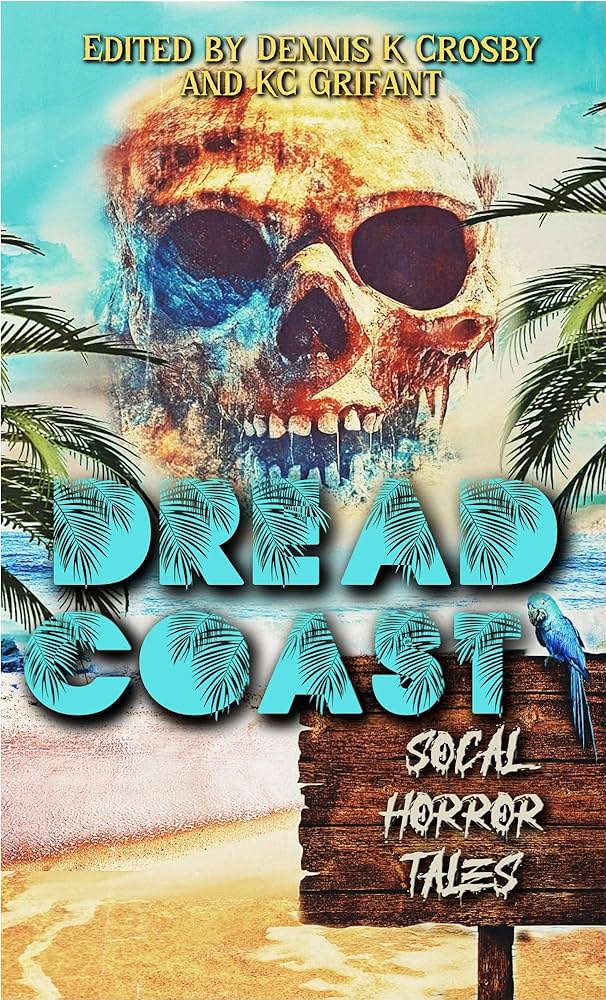This is going to be another one of those kind-of rambly ones.
Big shock, I follow a lot of other authors on social media. Some I’m a fan of, some I’m actually friends with, and there’s a pretty good-sized Venn diagram overlap there. Actually, I think it’d be a circle-within-a-circle.
Anyway…
It’s always neat to hear other writers talk about craft. Y’know, the nuts and bolts stuff I like to talk about here. Tips. Tricks. Common problems and uncommon solutions.
I bring this all up because Kameron Hurley was at a con a few weeks back and sort of live-posting things she heard from different panels. Not panels she was on, just different ones she decided to attend. So it was interesting takes on things and little snippets of advice.
Now, at one point an author on a panel brought up a certain story element and referred to it as XX. And Kameron Hurley noted that, huh, she generally called that element YY. Sad to say. this whole overall idea I’m talking about it what stuck with me and I didn’t make a note of the actual, specific element they were discussing. But we don’t really need it.
Once or thrice here I’ve talked about the idea of plot vs. story. But I’ve also mentioned that some more literature-minded folks out there might refer to these same ideas by fancy Russian names. And some folks might say what I’m calling story is just the character arc.

Writers are weird. The vast majority of us are more-or less self-taught at this, and sometimes we’re too creative for our own good. We each come up with our own unique ways to say similar things about how to tell stories in our chosen format. And once or thrice here I’ve talked about different college professors and the terms they come up with to describe those same things.
And that’s before we even get into different formats having their own terminology. Like, a scene in screenwriting is a very specific unit of storytelling, while in prose it’s a little more general. And an act is something very specific in television that’s kind of similar to an act in a play, but not at all the same thing as when we’re talking about three act structure. As I define it, anyway.
Yeah, even me. I say it here fairly often, but all the terms I use here on the ranty writing blog are just how I tend to describe these things. A couple of them I remember from college, some I picked up here or there, but a lot of the time… it’s just me. There’s a really good chance another author, an editor, a writing coach, or a random article on the web uses a different name for that exact same idea. Or maybe when they’re talking about XX on their social media or website, they mean something completely different.
Normally, no big deal. What does it matter what we call things, right? If I want to have my own special terms and phrases for that moment my hero does this or the specific challenge that causes that… so what? As I’ve mentioned here a few times it doesn’t matter how I write, all that matters is what I’ve written. What works for me won’t necessarily work for you and it definitely won’t work for him.
But…
I think sometimes we hit problems when these personal, unique terms get out into the wild and bounce off some of the more format-specific ones. People can start interpreting them in different ways. Weird ways. Because they see the same thing called by two different names—or maybe two different things called by very similar names—and then they try to distill these down to make “simplified” rules and definitions.
Like, okay, remember a while back and I was talking about structure, and how many different aspects of writing structure could refer to? And how often people would combine or confuse definitions and then spit that confusion back out as advice? Or, again, as rules that needed to be followed.
Heck, just a few weeks ago I talked about conflict, and all the different ways people define it. And then all the different ways people then try to judge conflict in a story based off all those random, personal definitions. It can get messy and confusing really fast.
Y’see, Timmy, we shouldn’t immediately take writing advice at face value when we stumble across it, no matter how simple or straightforward it sounds. I’m not saying it’s wrong, but pay attention to what being described more than what it’s being called. Someone might be giving you advice about conflict, but they’re really talking about action. They might keep referring to plot when they’re describing three act structure. It’s up to us to parse out what they actually mean and where this thread of advice fits in that big process -spiderweb of rules and tips and advice we each create
Yeah, the process-spiderweb. Doesn’t everyone call it that?
Random other thing—some of you may have noticed I didn’t post the August newsletter here on the last of the month as I usually do. I’m not doing that anymore. It’s making a few things feel a bit cluttered and redundant. From here on I’ll just add a link to the newsletter archive in the last post of the month. Like this. And of course, you can always just sign up for the newsletter and then this all becomes moot.

Oh, and if you’re in the San Diego area, this Saturday at 2:00 I’ll be at Mysterious Galaxy for the launch of the Dread Coast anthology. Come get books and get them scribbled in! Hear me read aloud in my squeaky, supposedly-accented voice.
Next time—unless I get a request from one of you—I’d like to go for a walk around the block.
Until then, go write.


One reply on “For Our Purposes, Let’s Call This…”
Based on your “inteview with a wizard” that you linked to on Bluesky recently, all I can say about an accent is, “Huh?” You sound perfectly “newscaster neutral accent” to me.